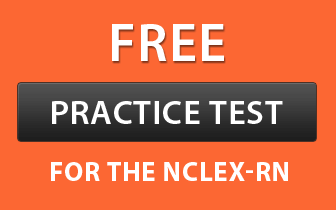Wisconsin, like many other states, is currently experiencing a shortage of healthcare professionals, largely due to a growing aging population, an increase in retirees, and a rise in chronic diseases. Though limitations of medical schools and residency programs contribute one more factor to the lack of healthcare professionals. This shortage does not disclude nurses, who are expected to be in demand from 2009 until 2030.
According to a 2018 Workforce Report from the Wisconsin Hospital Association, “Only 8% of Wisconsin CEOs surveyed believe Wisconsin will have enough physicians in ten years to meet the health care demands of an aging population.”
Despite the shortage, healthcare can be a lucrative sector to pursue a career in. As of 2020, registered nurses in Wisconsin earned an average salary of $65,159 per year — with some of the highest-paid positions earning nearly $100,000 per year. Though Wisconsin’s average salary is below the national average of $75,510 per year, the low cost of living in the state makes up for the lower income. Affordable homes and healthcare are among the benefits of living in the state.
Department of Safety and Professional Services
Nurses in Wisconsin receive licensure from the state’s Department of Safety and Professional Services (DSPS). Certification can be granted to both registered and practical nurses. Although practical nurses do not need to receive licensure to work, the Wisconsin State Legislature holds that “no person without a license may hold himself or herself out as a licensed practical nurse or licensed attendant.”
Practical nurses must work under the supervision of a registered nurse or physician and may not use the title or letters “Trained Practical Nurse” or “T.P.N.,” “Licensed Practical Nurse” or “L.P.N.,” “Licensed Attendant” or “L.A.,” “Trained Attendant” or “T.A.” Otherwise thought of as Unlicensed Assistive Personnel, unlicensed practical nurses hold positions including, but not limited to nurse aides, orderlies, assistants, and technicians.
Questions and concerns can be directed towards the following point of contact:
Department of Safety and Professional Services
4822 Madison Yards Way
Madison, WI 53705
Valerie.Payne1@wisconsin.gov
(608) 266-2112
Registered Nurse Education Requirements
There are a variety of degrees that can be pursued to prepare students for nursing certification, including bachelor’s, associate’s, and diploma programs. Likewise, aspiring nurses can choose from accredited schools in Wisconsin and across the country.
Each degree type varies in terms of time, cost, and preparation for career advancement. An associate’s degree consumes the least amount of time, while a bachelor’s degree consumes the most. The highest degree level in Wisconsin is the Advanced Practice Nurse Prescriber (APNP). Across the U.S., there is a push for nurses to receive higher degrees; Chenjuan Ma of New York University’s Rory Meyers College of Nursing in New York City puts it this way: “When more nurses have degrees, there’s a higher quality of care, lower mortality rate, and better patient outcomes.”
RN Licensure by Examination
Besides receiving an accredited degree, applicants must also pass their boards, a background test, and, on occasion, a few other specific requirements. Aspiring nurses looking to obtain licensure in Wisconsin should follow all information included below.
Fingerprinting and Background Checks
Wisconsin does not require fingerprinting for licensure; the state only requires self-disclosure of one’s criminal background.
However, all nursing certification boards require applicants to submit information regarding past criminal history.
Approved Exams
After successful completion of an accredited program, students must take the National Council Licensure Examination (NCLEX) for registered nurses. The exam is organized by the National Council of State Boards of Nursing (NCSBN) and uses computerized adaptive testing (CAT).
Applying to Take a Certification Exam
Nursing candidates must apply and register for the NCLEX online. Applications must be sent to the respective Nursing Regulatory Body. Each exam requires a $200 registration fee.
Further inquiries can be made to the following point of contact:
National Council of State Boards of Nursing, Inc.
Examinations Department
111 E. Wacker, Suite 2900
Chicago, IL 60601-4277
nclexinfo@ncsbn.org
Testing Vendors and Proctors
The exam is conducted by the testing vendor Pearson VUE. Payment can be made online by credit, debit, or prepaid card (VISA, MasterCard or American Express only). Interested applicants looking to make third-party payments through nursing schools, agencies, or employers must submit an inquiry to Pearson VUE NCLEX Candidate Services.
Applying for Licensure
Interested parties may apply through Wisconsin’s DSPS Online Licensure Application System. Applicants may use their school credentials to log in.
RN Licensure by Endorsement (Out-of-State Applicants)
Out-of-state applicants must indicate on their application that they plan on moving to Wisconsin and include all licensure from other states. Applicants coming from states that participate in Nursys must complete their verification process. All other applicants must contact the state’s Board directly via the link and address included above.
After applying, all applicants receive a temporary work permit, valid for 90 days. Temporary permits require a $10 fee.
RN License Renewal
Registered nurses may renew their licenses through the DSPS’s online portal. RN license renewal costs $73 and is due by the end of February.
For paper renewal forms, applicants may call the following number: (608) 266-2112
Continuing Education Requirements
Continuing education courses are currently not required for certified nurses in Wisconsin.
Wisconsin Nursing License Verification
Utilize Wisconsin’s Licensing System to verify the licensure of a person(s), facility, disciplinary, or provider.





